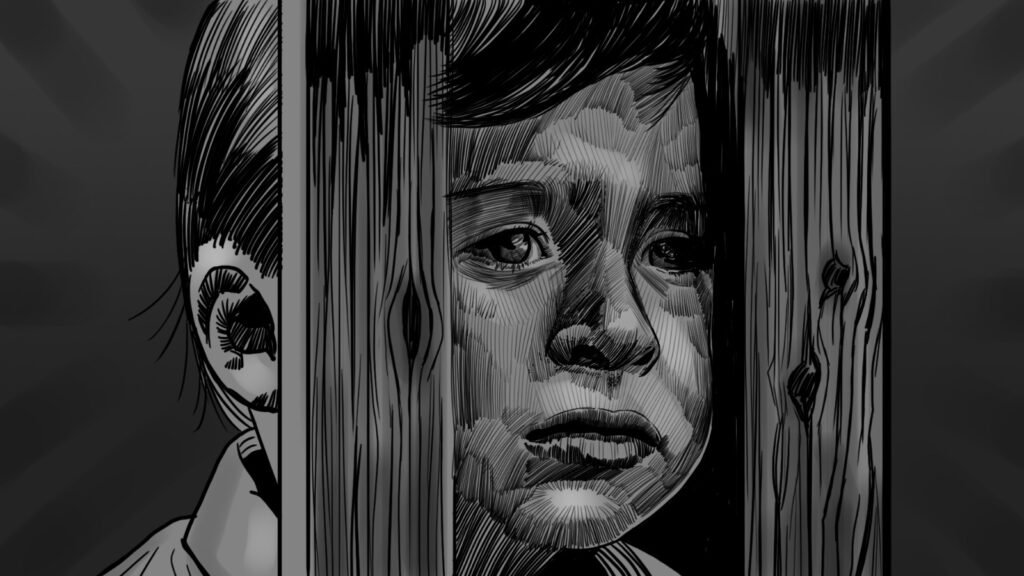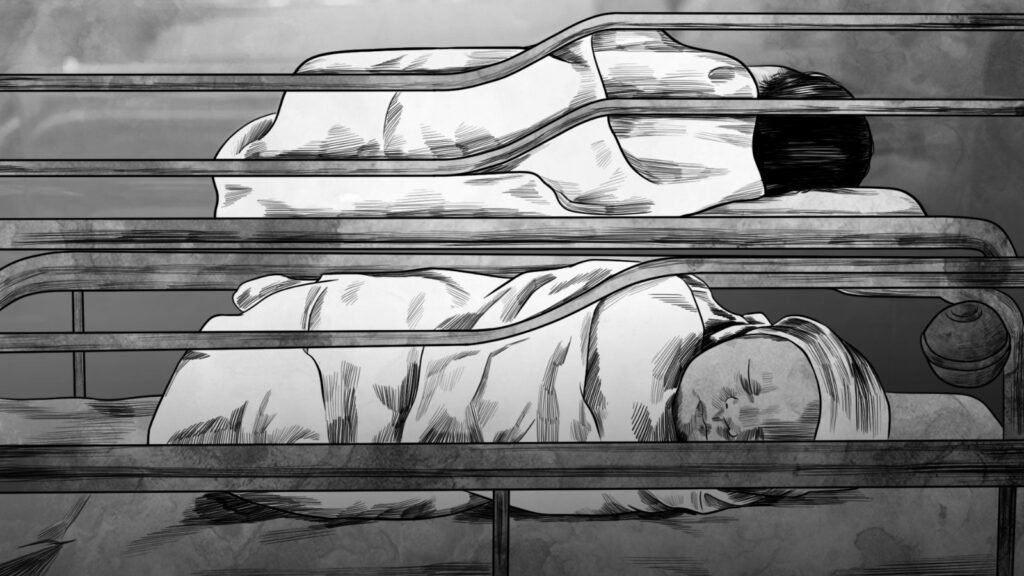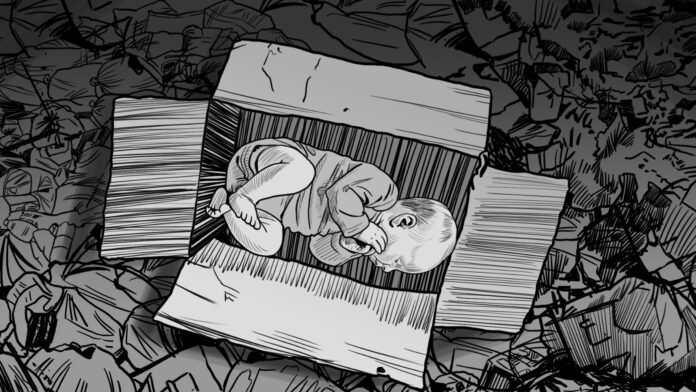The loss of one or both parents is a significant upheaval in a child’s life, requiring the embrace of remaining relatives. Suppose this loss is compounded by intentional neglect or rejection from one or both parents. In that case, it becomes the responsibility of the wider community to provide that child with the support and care they need.
Children of unknown parentage are among the most vulnerable groups in society, facing significant challenges not only due to the circumstances of their birth but also because of the legal and social complexities they encounter throughout their lives. These children often include those born from extramarital relationships, or due to situations like being lost or kidnapped before reaching an age of discernment, or as a result of wars or specific psychological crises.
A child of unknown parentage is one whose father is unknown, whether or not the mother is known.
International Mechanisms for Protecting Children’s Rights
The Convention on the Rights of the Child is one of the most important international legal instruments. It obliges signatory states to provide comprehensive protection for children. The convention requires countries to take all necessary measures to ensure children receive their fundamental rights, including those who are orphans. It emphasizes a child’s right to have an identity, name, and nationality from birth.
Article 20 states that “a child temporarily or permanently deprived of their family environment, or who cannot be allowed to remain in that environment for their best interests, is entitled to special protection and assistance provided by the state. States Parties shall ensure alternative care for such a child per national laws, which may include foster care, Islamic kafala, adoption, or, if necessary, placement in appropriate institutions. Consideration should be given to the child’s continuity of upbringing and their ethnic, cultural, and linguistic background.”
Despite all the legislation aimed at protecting children, even the most developed societies continue to suffer from recurring individual incidents that show no mercy to these children.
Baby Boxes
In an article by Michelle Castillo titled Rise in Use of Baby Boxes Concerns UN Officials (2012) on CBS News, it is discussed that baby boxes, which allow people to leave unwanted infants anonymously, are causing significant debate. The controversy centres on whether these boxes provide a safe solution for protecting infants or if they encourage irresponsible abandonment. These boxes are usually connected to hospitals or public places, where the infant can be safely placed, alerting staff immediately to ensure the child’s safety.
On the other hand, Castillo mentioned that the United Nations Committee on the Rights of the Child opposed these boxes, arguing that they do not protect children or serve their best interests. Dr. Maria Herzog, a member of the committee, emphasized that these boxes deprive children of their fundamental rights, such as the right to identity, and may encourage women to give birth in unsafe conditions away from hospitals.
Castillo adds that Germany and Poland have many such boxes, and safe haven laws in the United States provide legal protection for parents who leave their children at specific locations, like hospitals or police stations, without fear of legal prosecution. However, these laws have also raised some issues, such as in Nebraska, where the law was misinterpreted, leading some parents to abandon their older children.
However, there are concerns due to studies suggesting that these boxes may sometimes be used by relatives or individuals who pressure mothers into abandoning their children, raising questions about the respect for women’s rights in this process. Additionally, the boxes create a legal ambiguity, as abandoning a child in a box is considered legal, whereas doing so elsewhere is punishable.
At the same time, supporters of these baby boxes consider them a safe alternative to prevent cases where a child is abandoned in unsafe conditions, which could lead to the child’s death due to a lack of necessary care. Therefore, they advocate for baby boxes as a solution that protects the life of a child abandoned by their parents.
Arab Mechanisms for Protecting the Rights of Children of Unknown Parentage
Establishing paternity in Arab countries is based on Islamic Sharia, which considers the preservation of lineage one of its five main objectives. For example, in Qatar, Article 86 of the Family Law No. 22 of 2006 states that paternity is established through marriage, acknowledgement, or testimony. Article 93 specifies that paternity can be proven by the testimony of two men or one man and two women. Additionally, Article 95 allows paternity to be established through hearsay testimony, meaning testimony relayed from someone not present in court.
The Evidentiary Value of Genetic Fingerprinting in Establishing Lineage
Leila Mohammed Ahmed Al-Sayed, in her 2022 master’s thesis titled “Legal Protection for Parentless Children” from the College of Law at Qatar University, addresses the ethical and legal challenges associated with using DNA fingerprinting to establish parentage. These challenges include concerns about privacy, as DNA testing requires obtaining samples from individuals, raising questions about the protection of genetic information. Additionally, there is the need for prior consent from those involved and the potential psychological and social impact on the child if their parentage is confirmed or denied based on genetic evidence.
Al-Sayyed points out the varying approaches to the legal validity of DNA evidence in Arab countries. In Jordan, Sharia courts consider DNA evidence conclusive in establishing or denying lineage. In the UAE, the legislature requires proof of marital relations to establish lineage using modern scientific methods, including DNA. Meanwhile, Tunisian law explicitly allows using DNA and genetic analysis to establish the lineage of individuals with unknown parentage.
However, it believes that “genetic fingerprinting cannot be used to establish lineage without proof of marriage, as this contradicts the lineage principles in Islamic law. Modern scientific methods, including genetic fingerprinting, can reveal a biological relationship, but this alone does not establish lineage. Lineage is only recognized if it results from a legitimate marriage. Without marriage, the offspring are considered illegitimate, and lineage cannot be determined through these means.”
Article 3 of Qatari Law No. 9 of 2013 regarding genetic fingerprinting states that relevant authorities involved in investigation, prosecution, and trial may use the genetic fingerprint database for the following purposes: identifying individuals and their connection to crimes, establishing lineage, identifying missing persons and their families, identifying unknown bodies, and in any other cases requested by competent courts.
However, Article (96) of the Qatari Family Law No. (22) of 2006 strictly adheres to Islamic Sharia, stating that “denial of paternity resulting from the sworn allegation of adultery committed by one’s spouse according to Article (151) of this law leads to the denial of the child’s lineage from the man. However, the lineage is established if the man retracts his denial.” Article (151) defines the sworn allegation of adultery committed by one’s spouse as the process where both husband and wife swear four times, invoking God’s curse if they are lying, leading to permanent separation as per Article (152).
Based on the verse from Surah An-Nur, “And those who accuse their wives [of adultery] and have no witnesses except themselves—then the witness of one of them shall be four testimonies [swearing] by Allah that indeed, he is of the truthful. And the fifth [oath will be] that the curse of Allah be upon him if he should be among the liars. But it will prevent punishment from her if she gives four testimonies [swearing] by Allah that, indeed, he is one of the liars. And the fifth [oath will be] that the wrath of Allah be upon her if he was of the truthful.”
The demand by some to reject the sworn allegation of adultery committed by one’s spouse as a basis for denying a child’s paternity is nothing less than a rejection of clear and definitive Islamic legislation. Motherhood is considered an instinctive and compelling bond, while fatherhood is a voluntary sacrifice for the child. If a man denies paternity, it either means the child is certainly not his, or he harbours such resentment that he has already condemned the relationship. He will provide nothing beyond financial support and the family name, even if legally forced to accept it.

The Right to Identity
All Arab countries guarantee nationality to those born on their soil to unknown parents. For example, in Egypt, Article 2 of Law No. 26 of 1975, amended by Law 154 of 2004, states that a person is considered Egyptian if born to an Egyptian father, to an Egyptian mother and an unknown or stateless father, or if born in Egypt to unknown parents. A foundling in Egypt is presumed to have been born in the country unless proven otherwise.
As for those born to an Egyptian mother outside Egypt, Article (3) states that “A person born abroad to an Egyptian mother and an unknown father, a stateless father, or a father of unknown nationality is considered Egyptian if they choose Egyptian nationality within one year after reaching adulthood by notifying the Minister of Interior after establishing their ordinary residence in Egypt. If the Minister of Interior does not object within a year of receiving the notification, they are considered Egyptian.”

The Role of Social Welfare Institutions
Social institutions, such as orphanages, play a crucial role in supporting and protecting children of unknown parentage. In Islamic law, Kafala (sponsorship) is a legal system designed to offer alternative care for children who do not know their parents or cannot live with their biological families.
In Sahih al-Tirmidhi, Sahl ibn Said al-Sa’idi narrates that the Messenger of Allah (peace and blessings be upon him) said, “The guardian of an orphan and I will be in Paradise like these two,” and he indicated with his two fingers, meaning the index and middle fingers.
The Kafala system is known as the care of a child without legally attributing them to anyone. This ensures the child’s right to be attributed to their biological parents if known and prevents lineage confusion if one parent is unknown.
Sponsorship differs from adoption as practised in non-Muslim societies, where the child is attributed to the adoptive family and takes their name.
Fostering is an important means of protecting orphaned children by providing them with an alternative family environment that cares for their upbringing and meets their psychological and social needs. Additionally, the foster parent plays a crucial role in securing the child’s future through education and healthcare.
Article 5 of the Minister of Civil Service and Housing Affairs Decision No. (4) of 2003 approving the establishment, registration, and announcement of the Qatar Foundation for the Care of Orphans states that the centre is responsible for taking all necessary actions to achieve its objectives and activate its role. Specifically, it is to create an alternative suitable environment for the targeted groups, provide comprehensive living services for those who cannot live in a family environment, and conduct regular follow-ups on those living in foster families according to the centre’s regulations and standards.
The article also stipulates that “cooperation and coordination with ministries, public bodies, other government agencies, and civil society organizations must be established to achieve the centre’s objectives. This includes organizing seminars and training courses on topics relevant to the centre’s goals and responsibilities, publishing newsletters, brochures, and periodicals related to these objectives, and obtaining the necessary licenses from the competent authorities to carry out its activities in line with its goals.”
The Dreama Orphan Care Center was established in Qatar in 2002 to provide orphaned children with a safe and stable environment. The centre offers social, psychological, health, and educational care. It also works on integrating orphans into society and raising awareness about the importance of fostering alternative families, ensuring full integration into the community.
The centre’s name and logo were chosen to symbolize the natural plants that grow in Qatar. These plants represent strength as they thrive in harsh, arid conditions, and their pinkish-purple color reflects the innocence and beauty of children.
Additionally, the centre provides a 24/7 hotline to receive calls from orphans or those wishing to support them, offering essential social services.
Laila Mohamed Ahmed Al-Sayed, in completing her master’s degree requirements at the College of Law at Qatar University, highlighted the challenges some Arab countries face in monitoring the application of the Kafala system and ensuring that sponsored children receive their full rights. She noted that there might be cases where the Kafala system is exploited, negatively impacting the child’s welfare. Therefore, the media plays a crucial role in overseeing these institutions.
A child of unknown parentage or lineage needs a gentle hand, a compassionate heart, and a watchful eye. Orphanhood is not solely defined by the death of one or both parents.




